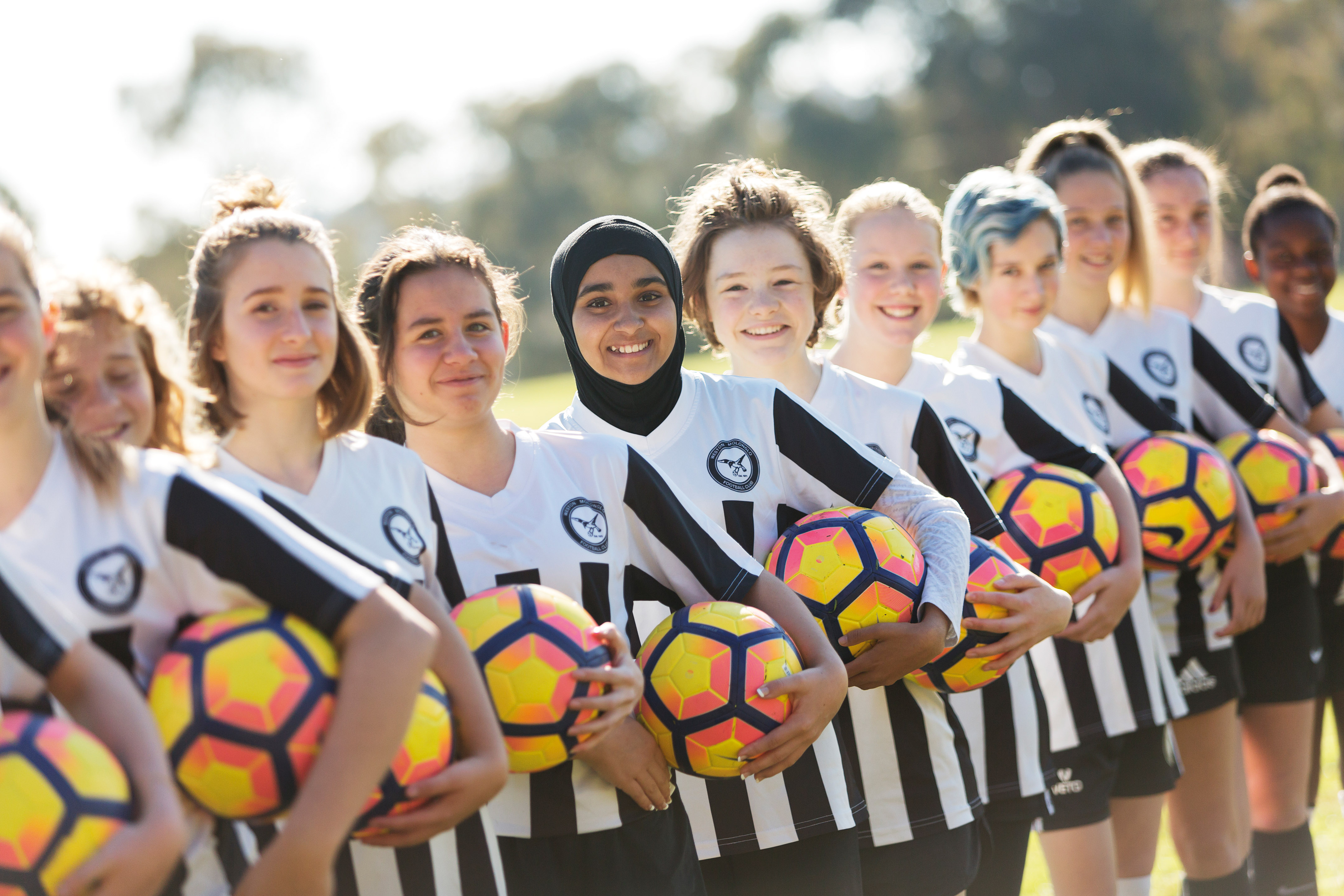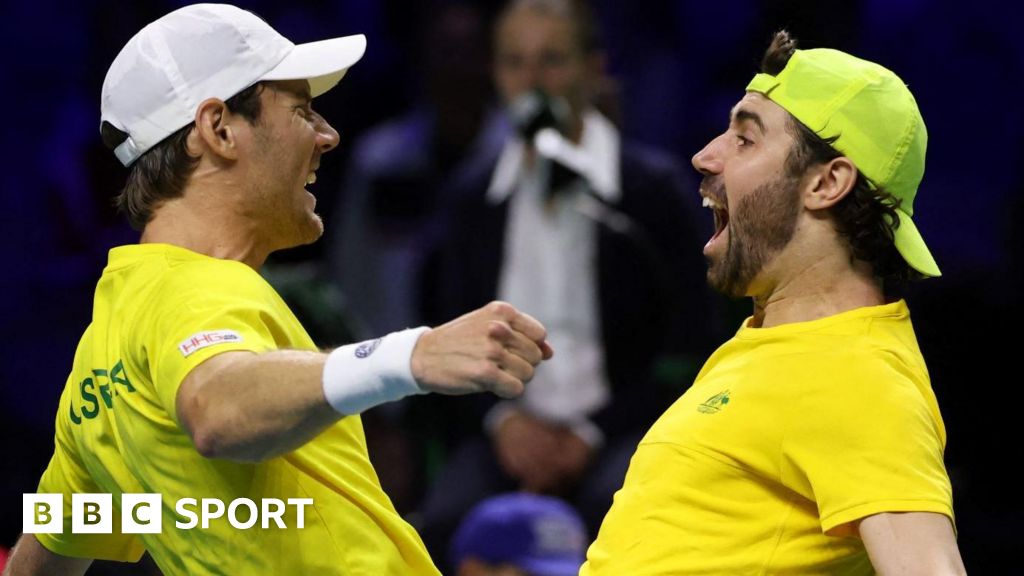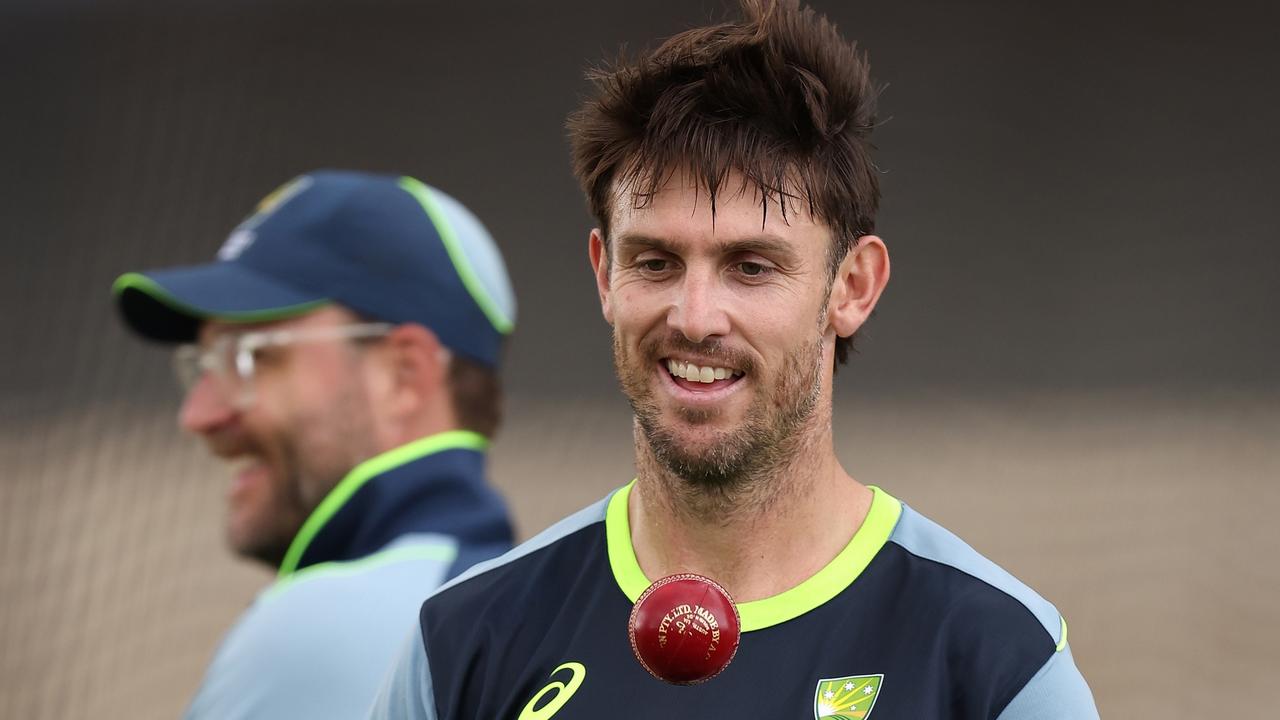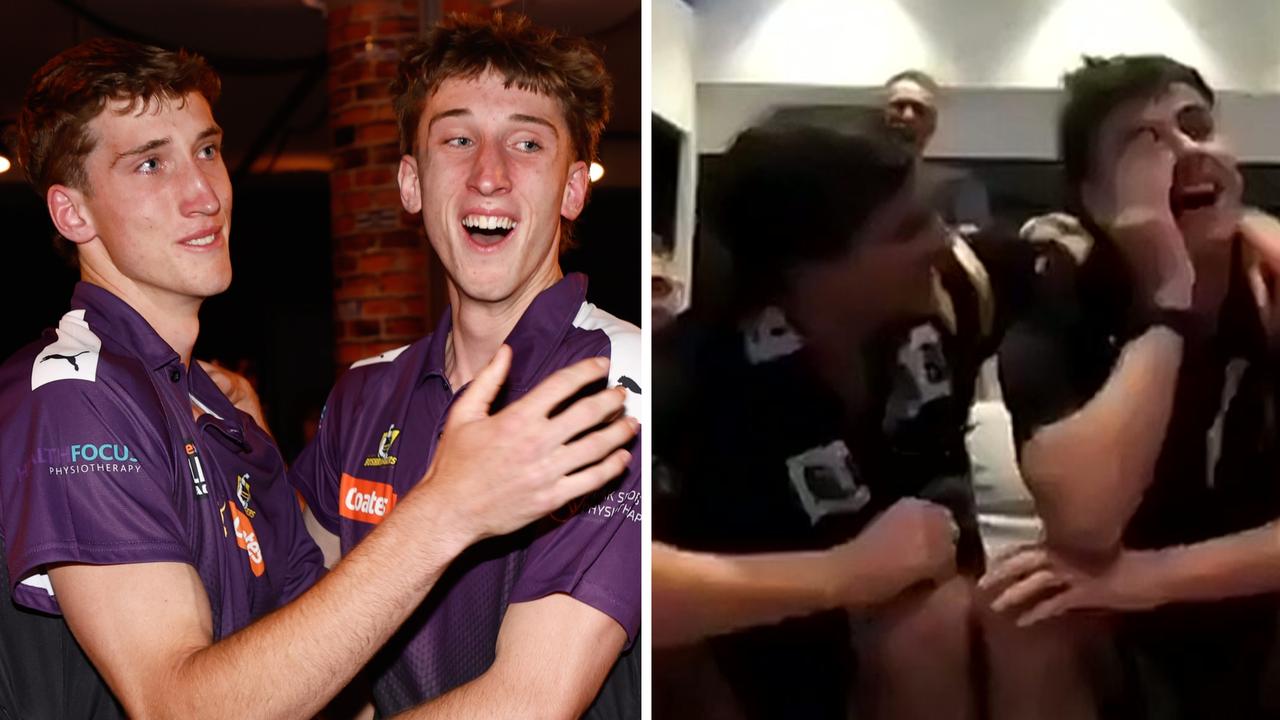‘Like nothing I’ve ever seen’: How these Australian baseballers become sporting ‘royalty’ in Japan

- by Admin
- November 13, 2024
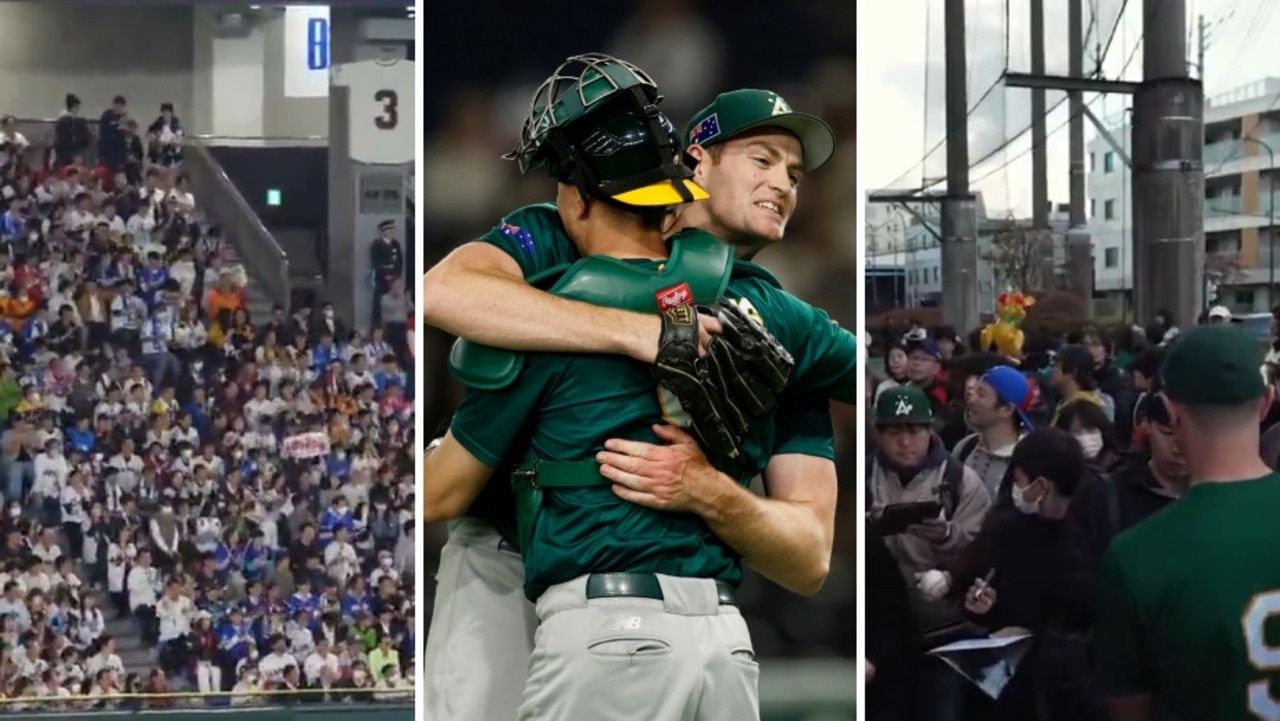
The team captain, Tim Kennelly, is a firefighter. Pitcher Mitch Neunborn worked both as a plumber and disability support worker in 2022 before impressing enough in the ABL and World Baseball Classic (WBC) to earn a full-time gig playing Double-A.
Watch selected NRL, AFL, SSN games plus every F1 qualifying session and race live in 4K on Kayo. New to Kayo? Get your first month for just $1. Limited time offer.
Some players, like Solomon Maguire and Travis Bazzana, are making their senior tournament debut while others, including Tim Atherton and Todd Van Steensel, bring years of experience.
It is a group that is both already established and yet, in many ways, also emerging. And on Wednesday night, they will be playing in front of an expected TV audience of 30 million.
It is a stark contrast to what they commonly experience back home in Australia where they are, as veteran pitcher Steve Kent put it, “regular everyday people”.
But thousands of kilometres away in Fuchu, a Tokyo suburb which is their “second home”, it is very different. “We come over here,” Kent added, “and we’re baseball players”.
Which is powerful in its simplicity because being a baseball player in Australia means a different thing to being a baseball player in Japan.
In Japan, it means feeling “like a bit of a rock star” at times.
“They’re treated like royalty,” added Liam Spence, who was a fifth-round draft pick of the Chicago Cubs in 2021.
“It’s pretty unbelievable. It’s just one of those things… just being able to experience it is a blessing because it’s like nothing else that you can experience in the world… it’s really just a once in a lifetime type of experience.”
Bazzana, who made history in July when he became the first Australian to be selected first overall in the MLB Draft, described the support in Japan as “incredible”.
“They support their baseball players and the baseball community is so engaged here,” he added.
“It’s almost like nothing I’ve ever seen.”
It is not just talk either. To put it in perspective, consider this from Australia’s manager and former MLB All-Star Dave Nilsson.
“The World Series that was just played with the Yankees and the Dodgers, I think they averaged close to 16 million viewership,” Nilsson explained.
“I think when we played Japan last year in the World Baseball Classic we had close to 30 million in Japan … the numbers are off the charts, it’s very hard to describe.”
Similar numbers are expected for the opening game against Japan in Nagoya, which will be played at Tokyo Dome in front of nearly 50,000 fans on Wednesday at 9pm AEDT.
It is the first of five games Australia will play in Group B at the Premier12, which brings together the top 12 ranked baseball countries in the world.
As diverse as the playing group may be, for the past few weeks they have all been brought together by one common goal: to become the best tournament team in the world.
“It might sound ambitious but we truly believe it,” Kent said.
They truly believe that this group, which includes three players with MLB experience and 25 who have previously played in the World Baseball Classic or Premier12, is capable of more.
More than making it to the quarterfinal at last year’s World Baseball Classic and finishing in sixth place at the 2019 Premier12.
It wasn’t always that way though. Kent, who first made the senior national team when he was 17, has been able to see that shift first-hand — from a team that “turned up to tournaments hoping to win some games” to one that “would arrive at tournaments thinking they could win some games”.
“And now we have this real shifting mindset that we now turn up and we expect to win these games,” the 35-year-old added.
“And we genuinely believe that as a team. You know, on paper, we may not have a whole team full of superstars, but when you get a group of Aussies together, we all battle for each other and we’re so tight and close as a group.”
Foxsports.com.au spoke to five members of that group ahead of Wednesday’s game to get a sense for what it is like playing in Japan, why the opportunity means so much and why all Australians — baseball diehards or not — should get behind them.
‘IT’S A DIFFERENT ANIMAL’: WHY LIFE IN JAPAN IS SO DIFFERENT
If you want to get an idea of how different everyday life is for the playing group in Japan you only have to walk around the streets of Fuchu, where the team’s training camp is based, lined with Australian colours and flags.
You may even happen to stumble across one of the players interacting with the local kids, as is the case for Kent every day after practice on his walk back to the team hotel.
Vision shared of Kent playing with a few of the local kids on X, formerly known as Twitter, on Friday night has over 25,000 likes and 3.1 million impressions.
“We don’t get treated like we’re Joe Blow from down the street, we get treated like we’re professional athletes, which is incredible,” Kent said, going on to then recall his first game against the Japanese national team and what he could only describe as an “out of body experience” when he stepped up to the mound.
“We were actually winning, I think it was the eighth inning, we were up by a run or so,” Kent added.
“I came into the game, the Japanese fans were going absolutely crazy, there was probably somewhere around 50,000 people there, and when I look back on that moment, it’s almost like an out of body experience.
“I don’t particularly remember it as being on the mound, it’s almost as if I was sitting in the crowd watching myself and I’ve never been more nervous in my life, I think my knees were probably knocking together.”
He is not the only one to have had that same kind of feeling. In fact, it almost seems like a rite of passage for every Australian player at the Tokyo Dome.
Spence also compared it to an “out of body experience”.
“I remember it vividly but at the same time it just almost doesn’t feel real because it feels more like a dream in a sense of how cool it actually was,” he said.
Sherriff, meanwhile, described it as more of a “blackout moment” — one he was completely prepared for at last year’s World Baseball Classic given so many of his teammates had told him of also having that exact same feeling in their trip to the plate or mound.
But the word of warning could only do so much.
“It’s a different animal over there,” Sherriff said.
“… When I got on the mound, everything just kind of blacked out around me. It was the catcher and myself. Obviously after I came off the pitch, then you start to realise, ‘Holy f***. That’s a lot of people around’.
“But one thing obviously a lot of the older guys told me is when I get out there, take a deep breath and really actually take it all in because you will go through a blackout moment where you won’t remember what’s going on when you pitch.
“So that was the one thing I was quite grateful for before I threw the first pitch and made sure I looked around and really took everything in.”
Spence didn’t get the chance to do that when he hit a two-RBI single in Australia’s 4-3 loss to Taiwan in the Asia Professional Baseball Championship last year, which sent the Kangaroo Club — an organically formed Team Australia fan group at the Tokyo Dome — crazy.
“I’m glad that there’s a video so I can watch it and remember it,” Spence said of that moment.
Sherriff, meanwhile, recalled playing games against Chinese Taipei and then Korea before quickly realising there were more Japanese fans cheering them.
“I think that’s when it really kind of set in that Japanese baseball is really taking interest in Australian baseball,” he said.
Which means a lot because for Sherriff and so many other Australian baseball players, it is moments like these — the chance to pull on the green and gold and play for something more than just yourself — which makes the long hours all worth it.
Because the reality is that for most of the men playing in front of nearly 50,000 people on Wednesday night, this is not their full-time job. Just look at Tim Kennelly, the team captain.
“It’s inconceivable in any other sport to be playing on the world stage against the best team in the world, where your captain’s a fireman,” Nilsson said.
“That’s who we are.”
WHY AUSTRALIA’S BASEBALL STARS WILL KEEP ‘CHASING THAT FEELING’
If anything, you’d think having a captain who is a firefighter by day and baseball player by night would make this one of the easiest national teams for Australians to get behind.
Especially when you consider what the 37-year-old has achieved throughout his career as the Australian Baseball League’s modern day all-time leader in games played, home runs, hits and runs batted in.
Add in the nine seasons in the minor leagues, where he got as high as Triple-A, and you get an even better idea of just how much of himself Kennelly has given to the game.
But how much has he got back in return?
“The journey of Australian baseball is a pretty special one,” Nilsson said.
“You have to commit to playing overseas and even when you’re back home, you’re pretty much unacknowledged for the most part. So, it can be a little disheartening that you’re growing up and you’re making all these sacrifices for the national team in a country that loves sport, right?
“And I think if the general public knew more about the plight of the Australian baseball team they would absolutely support us, we’re the classic case of what Australia stands for… just hard workers getting out there and having a shot.”
Hard workers like Spence, a fifth-round draft pick who reached as high as Triple-A and knows all too well that chasing your dream as an Australian baseball player comes at a cost.
“A season in minor league baseball is a grind,” he said.
“You might have the game at seven o’clock at night, but you’re at the field at 12 o’clock because you’ve got to work out, you’ve got to do all that other stuff… and then the games don’t finish till you know 10 or 11 o’clock.
“And then you’ve got to just do it again the next day and no matter if you had a good day or a bad day, or you’re going through a bad phase, you’re still going to show up the next day and try to be your best.
“It’s tough… there’s a lot of failure in this game. It’s one of those games where it’s not going to go right for you all the time.
“But when it does, it’s one of the best feelings in the world. So you’re just chasing that feeling.”
And when that feeling does come, like when Tommy Edman was caught stealing second base for the final out of the game against South Korea in last year’s WBC, it is hard to describe.
“I wouldn’t even know the right word to put it,” Spence said, speaking not even about that moment but more generally about feeling appreciated in Japan and, more importantly, feeling seen.
“It’s just one of those things where everything that you did… you did it for a reason, for a moment like that.
“To get that feeling… that’s why you play this game. That’s why we do all the early workouts, the long days on the field, just so that when the time comes, you can achieve something great like that.”
Even for someone like Bazzana, who is already feeling the love more than most after going first overall in this year’s MLB draft, making his senior national team debut is special — particularly so given who he will be playing alongside.
Bazzana and childhood friend Solomon Maguire used to talk about it a lot when they were younger; about playing in the World Baseball Classic, the Premier 12 and, potentially, the Olympics.
The pair had been playing with and against each other since they were just nine years old while also seeing plenty of each other at Sydney Blue Sox development training sessions.
“So we’ve discussed this a lot,” Bazzana said.
“It’s one of those things that was commonly circling through our conversations when we were younger and it’s finally here so we’re trying to make the most of it and dominate.”
Meanwhile, it will be another chance for Sherriff to don the green and gold after pitching for Australia at the World Baseball Classic and the Asia Professional Baseball Championships last year.
Except within the space of a few months, the 22-year-old returns to the national team a changed player — and person.
He spent six weeks training with the Rakuten Golden Eagles, a team in Japan’s Nippon Professional Baseball (NPB) league — the country’s top tier competition.
Sherriff said the six-week stint with the Eagles was “huge” for his development, having previously “really, really struggled” when he spent some time with the Arizona Diamondbacks.
“I couldn’t really hold my own over there,” added Sherriff, who was just 18 years old when he went over to the States.
“And being away from home really, really, really was difficult.”
Which is why tournaments like these can be about more than just winning or losing a game.
“Sometimes you feel lost when you feel like things aren’t going your way and sometimes you just can’t get out of that rut for quite a while, and it’s about experiencing stuff like this,” Sherriff said.
“Nothing compares to being able to throw on the Aussie jersey and play with a whole bunch of mates,” added Kent.
“It’s the most incredible experience, it’s the purest form of baseball, no one is out here playing for themselves.
“We’ll do the little things, we’ll do whatever it takes to win as a team and it’s a really special feeling… there’s no egos, it is just 28 guys plus the coaching staff all fighting for one shared common goal.”
That common goal, again, being to become the best tournament team in the world.
It may seem unrealistic to some, but in reality, it is anything but because this is a team and this is a coaching that is realistic about the fact that it lacks the depth and resources to compete in a marathon.
But the Premier12 isn’t a marathon. Neither is the World Baseball Classic. Both tournaments are a sprint where on any given day, this Australian team believes it can beat the best in the world.
They did it against the USA in 2019 and then against South Korea last year. So, who is to tell them they can’t do it a few more times and eventually win it all?
The expectations are certainly higher and in speaking to Nilsson, you get the sense this group has every intention of reaching them.
“I think our performances the last period of time, especially the last six years, have really validated that,” the Australian coach said.
“In all the events in the last six years we finished no worse than sixth, which doesn’t sound much but you take teams like the Socceroos and they finish eighth and we almost shut down the country and celebrate them, right?
“So, you know, for us to continually finish in that top six range, which is a run here or there away from being in the gold medal game. So we’re that close.”
Sherriff, meanwhile, said that this year’s camp has been “full on” and that the players are “really getting after it knowing if we can execute, things can happen in tournament baseball”.
The veterans in particular are really pushing that belief and it makes it easy for the group’s fresher faces, including Bazzana, to quickly buy in.
“It’s baseball, anyone can win on any given day,” he said.
“If we find a way to keep putting the pieces together and keep building team traits and chemistry there’s no reason we couldn’t be prepared to win tournament baseball at the highest level.
“I think we’re on the right track and the right pieces are there to be the best tournament team in the world.”
The Latest News
-
November 22, 2024Affiliates announced as Play Well Strategy turns one
-
November 22, 2024Childish Gambino cancels Australian and New Zealand leg of The New World tour
-
November 22, 2024Australia v India live: Mystery surrounds line-up as coin toss nears
-
November 22, 2024Unbreakable: Jelena Dokic’s compelling story on the big screen
-
November 22, 2024Introducing The Winners Of The 2024 Australian Fashion Laureate | marie claire
